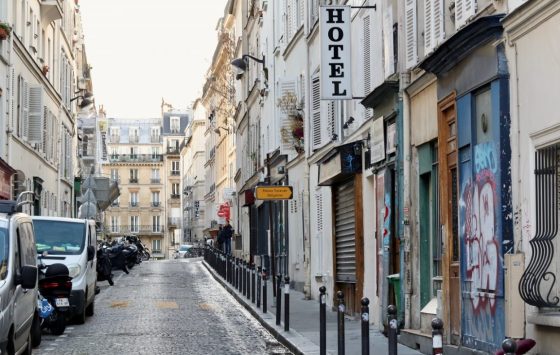How’s your carbon footprint? Sara Foster passes on her top ten for holidays that give back, help the locals – and keep the planet green.
 1. Look for accommodation and tours that also ‘give back’ to the local community: e.g. supporting schools or street children.
1. Look for accommodation and tours that also ‘give back’ to the local community: e.g. supporting schools or street children.
2. Think carefully before giving money to street children. In some cases where begging is rife, adults look to capitalise on children’s ‘cuteness’ and the money will be taken from the child as soon as you round the corner. You might be better donating to a local charity where the money is more likely to be distributed to those in need. Other options are buying meals or distributing things like pencils or crayons which have more practical value.
3. If you can’t see native wildlife in their natural environment, check out rehabilitation centres or sanctuaries rather than places that might have captured animals to profit from tourist curiosity. In particular, be wary about staying in places that keep captive wildlife, particularly if tourists are paying to watch them perform or to have photos taken with them. For example, dolphins should never be kept in hotel pools, no exceptions. Ask questions and trust your instincts. If tourist money goes into these kinds of initiatives it encourages them to keep on going and further endangers species survival in the wild.
4. Do not try ‘exotic delicacies’ of meat because they are presented as local fare. Nowadays so many animals are somewhere on the endangered ladder, yet their meat is often advertised in regions where they are found in the wild, and travellers sometimes unthinkingly sample it because it is a ‘local delicacy’. It doesn’t take much to make a ‘market’, and if demand is there, there will always be people willing to supply, particularly in poorer countries where this kind of sale might mean an enormous income by local standards. Shark fin soup is the most prominent example: sharks are a vital link in the food chain and are rapidly becoming endangered because of the lucrative market, particularly in Asia, not to mention the barbaric and unethical practices often involved in finning a shark. It’s not easy to break this cycle, but turning away from restaurants offering such meals and not inadvertently supporting unsustainable practices is a significant step.
5. Look for self-sufficient accommodation, where owners are concerned about keeping their waste and energy usage low and minimising environmental impact. Also look for hotels that support local businesses by using their produce, etc.
6. Watch where you tread. It’s all too easy to stray from marked routes, and they will always be there for a reason, be it avoiding dangers such as loose rocks, hidden holes, even landmines, or protecting local flora and fauna. Stick to marked paths at all times.
7. Don’t only take your own rubbish with you, collect any other rubbish you see and dispose of it along with your own. Make it your problem rather than ignoring it because you weren’t originally responsible. This is particularly important in areas of abundant wildlife, on land and in the sea, as a small piece of plastic can easily kill. Likewise, don’t contaminate fresh water by putting unnatural waste products in it – so if you need to wash in a river or stream, don’t take your soaps or shampoos in with you.
8. Don’t disturb flora or fauna for a photo opportunity, work around them and be aware of what’s going on around you. Listen to any experts you’re with and follow their instructions to the letter. I once saw an Italian man pose for an expressly forbidden flash photo with an endangered nesting loggerhead turtle, which then abandoned its nest without laying and headed back to sea. Turtles only come onto land once a year to try to lay eggs, so this one ill-thought-out action had an incredible environmental impact.
9. If you love a place you visit, check out the conservation or ecological issues it has when you get home, and add your voice. Be passionate, even if causes seem hopeless, because if enough people are prepared to speak out then change will follow.
10. Think about offsetting carbon emissions created by your trip. For example, on a one-way trip for one person from Sydney to LA using Qantas’s ‘Fly Carbon Neutral’ program.


